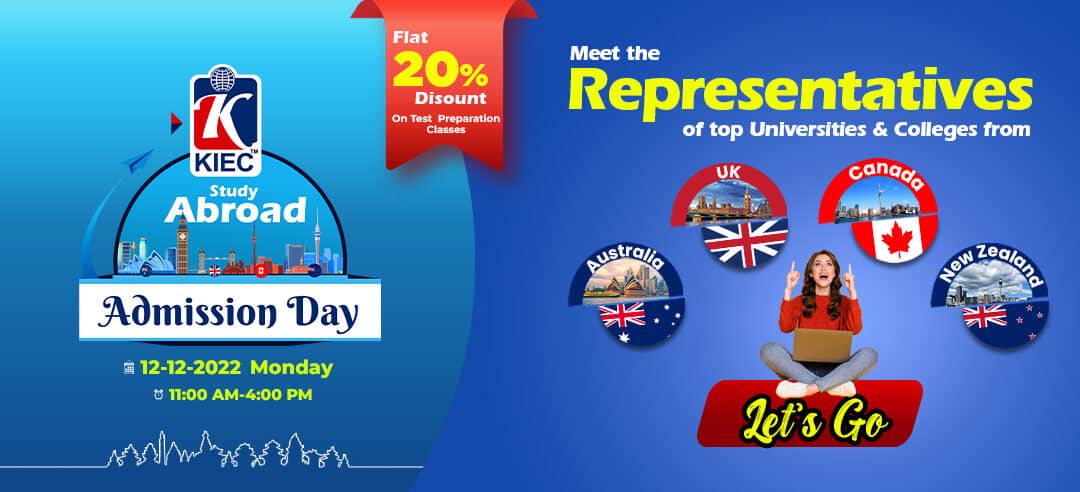
१२.१२ (१२ डिसेमबर) मा के प्लान छ तपॅाईको??
१२.१२ (१२ डिसेमबर) मा के प्लान छ तपॅाईको??
![]()
![]() के हो १२.१२??
के हो १२.१२?? ![]()
![]()

१२.१२ (१२ डिसेमबर) मा के प्लान छ तपॅाईको??
![]()
![]() के हो १२.१२??
के हो १२.१२?? ![]()
![]()

You will have to appear one face-to-face interview with consular officer for US visa. So the following mantras will let you win the heart of consular officer and convince him/her to give you your ticket to U.S.: the student visa.
Because you are going on a temporary visa, demonstrate to the consular officer that you have strong ties to your country of residence and show that you intend to depart the United States after your temporary stay.
Be concise, be relevant
Because visa interviews are short, do your best to explain why you want to study in the United States and how you plan to support yourself while in school.
If you can’t sufficiently convince the consular officer why you have chosen a certain field of study in particular university/college, then the chances are you are looked upon as an intended immigrant rather than a prospective student. So be prepared to answer the questions related to your course of study. You should also be able to explain how studying in the United States relates to your future professional career in your home country.
Bring all required genuine documents and supplements. If the documents are written (like recommendation letters) make sure they are short and present a clear picture of you.
Understand that you are going oversees for study and be ready to show adequate funds to support your living in that country. Do not base your plans to pay for colleges on the work opportunities that might be available to an international student. You will not be allowed to work full time and income will not be sufficient.
You might be taking the TOEFL or taking the IELTS score report to the interview. But what matters is how persuasively you can talk and convince the officers of your real intention of studying in the U.S. The skill is also assessed because strong command over English is important to succeed as a student in U.S.
Being confident and maintaining a positive attitude always helps. Do not engage the consular officer in an argument. If you are denied a student visa, ask the officer for a list of documents he or she would suggest you bring in order to overcome the refusal, and try to get the reason you were denied in writing.
More USA Interview Tips: https://www.kiec.edu.np/interview/usa/tips/

The U.S. government takes working illegally very seriously. This page will help you learn the basics of the work authorization process.
There are limited work opportunities available in the United States for F-1 students. For this reason, before coming to the United States, F-1 students must prove they have the financial ability (e.g., present bank statements) to pay for tuition and living expenses while studying. If you decide that you want to work, the first step is always to talk with your designated school official (DSO).
If your DSO knows you are working without permission, they must report it through SEVIS and your record can be terminated. That means that you will have to leave the United States immediately, and you may not be allowed to return.
Below are the 4 main types of opportunities to work in the United States depending on your visa and program of study.
On-campus employment is work that F-1 students whose status is Active in SEVIS status may apply for. On-campus employment is specific to work that takes place on campus or at an off-campus location that is affiliated with the school. Examples on on-campus employment include working at a university bookstore or cafeteria.
Off-campus employment is work that that takes place outside of a school campus. Off-campus employment is only available to F-1 students who have completed at least one full academic year of their program of study, and who have an economic hardship that qualifies for the Department of Homeland Security’s emergent circumstances.
Curricular Practical Training (CPT) is an alternative study, internship or other type of required practicum that is offered by a sponsoring employer through your college or university. CPT is only available for F-1 students when it is part of an established curriculum within a school. CPT must relate to your program of study, however, unlike OPT and other work, CPT can be full time and is not restricted by a weekly 20-hour work limit.
Optional Practical Training (OPT) is a form of temporary employment that directly relates to your program of study. You can apply for OPT during your program of study, which is known an pre-completion OPT, or after you finish your program of study, known as post-completion OPT. In order to apply for OPT, F-1 students must request approval from their DSO. A DSO makes this recommendation by endorsing a student’s Form I-20. Then the student must file the Form I-765 with USCIS, if approved, USCIS will issue a Form I-766. You cannot begin to work until you receive your Employment Authorization Document from USCIS.
Every year, the number of international students in the US rises as more and more students choose the Unites States as the place they wanted to broaden their experience and continue their education. In fact, the US is now the most popular country for international students. Why do so many international students choose U.S. colleges and universities?
The United States has one of the world’s finest university systems, with outstanding programs in virtually all fields. At the undergraduate level, excellent programs exist in traditional disciplines, as well as in professional fields. At the graduate level, students have the opportunity to work directly with some of the finest minds in their field of study, with the chance to become involved with exclusive research and educational opportunities. U.S. degrees are recognized throughout the world for their excellence.
The United States is home to several thousand colleges and universities, boasting at least ten times as many campuses as in any other country. As a result, the higher education system in the U.S. has something for everyone. Some U.S. colleges and universities stress broad educational principles; others emphasize practical, employment-related skills; and still others specialize in the arts, social sciences or technical fields. This means that no matter what you plan on studying, you will have a wide variety of programs in your particular field from which to choose.
Universities in the U.S. pride themselves on being at the forefront of technology, research and techniques, and in making the best possible equipment and resources available to their students. Even if your field does not directly involve science or engineering, you will have opportunities to become skilled in using the latest technology to conduct research, as well as obtain and process information. You will find ways to stay connected with researchers, teachers and experts in your field all over the world.
You may be able to gain valuable experience through teaching and/or research while you help to finance your education in the U.S., particularly if you are a graduate student. Many graduate programs offer training and teaching opportunities that enable students to become teaching assistants to undergraduates and/or research assistants on special projects exploring different aspects of your field of study.
International students are some of the most valued teachers and researchers in U.S. universities because they bring new skills and ideas to the classroom and library or laboratory. This practical component of your education will prove useful in your future career, and may give you insights into your field that would not be possible through course study alone.
Although many programs are highly structured in that specific coursework requirements must be met, you will generally be able to find a wide variety of course choices to meet those requirements. For example, liberal arts coursework for an undergraduate program will include classes in languages and mathematics, but you will be given a wide variety of classes which fit those requirements, and the freedom to decide which classes best match your interests.
At the advanced stages of a degree, or if you are pursuing a graduate degree, you will be able to tailor your coursework to fit your specific academic goals, needs and interests. When you choose topics for independent study for a graduate thesis or dissertation, you can emphasize ideas that are important to you, your field and your country.
Experience in an international setting is a marketable commodity. Many employers seek the wide range of knowledge, adaptability and experience that international students acquire by studying in the United States. Companies in the U.S. are increasingly seeking to become a strong presence in the global marketplace. They often look to hire employees who not only have multi-cultural language skills, but those who can also help communicate, negotiate and conduct business across different cultures.
The United States is not the only country seeking strong candidates when hiring; international students are in high demand elsewhere, as well. In recent years, international companies have become much more proactive in recruiting from the pool of strong international student graduates. Your long-term career prospects can be enhanced by your experiences through the development of self-confidence, independence and cross-cultural skills – attributes which are in high demand with employers worldwide.
Studying in the United States is a rewarding experience, but navigating your way through day-to-day issues can be a challenge. Many international students find that the college and university international student office is a great resource when it comes to adapting to a culturally and academically different environment. The mission of the international student office is to assist students like you, and there is often a wide range of student services that they provide
An orientation program upon your arrival is just the start of the many programs and benefits of the university international student office – throughout your time in the U.S., they can help answer questions you may have regarding your visa status, financial situation, housing, employment possibilities, health concerns and more. If you choose to complete your degree in the United States, this office often provides resume and employment assistance as graduation nears. The international student office will be an invaluable source of information and help as you make the transition into academic and cultural life in the United States.
When you continue your studies in the U.S., you are making a choice to broaden not only your educational opportunities, but your cultural experience, as well. Whether you attend a small, private college in a small town or a university situated in the middle of a large urban area, most universities offer a variety of student clubs and organizations to match the wide array of student interests. You can have the opportunity to immerse yourself in American culture, meeting new people and making new friends, through different organizations and associations.
International students often find that the international student office is a good starting point for campus offerings, as well as the campus student center. Your time studying abroad can be enriched by taking part in the social and cultural scene surrounding you, and you will likely find that U.S. campuses provide a rich variety academic, cultural and athletic activities that add new dimensions to your life.


Usha Niraula
U.S.A VISA Success
IMPORTANT DATES
Application Started on: July 15, 2016
I20 Received on: Sept 10, 2016
VISA Received on: Nov 14, 2016
I came to KIEC after being rejected from elsewhere on July 7th 2016. After being counselled by Suman Sharma at KIEC, I got a realistic picture of the US college admissions and visa process. I was also able to dispell the rumours and myths regarding the visa process and this greatly boosted my morale and I decided to apply again.
KIEC helped me find colleges that matched my profile and as a result & also received scholarships from three colleges.
Even after receiving my I20s, I received continuous support from KIEC & this included helpful visa interview preparation classes and help with filling the DS-160.
I am very thankful to KIEC for everything.
xoxo
Usha
Request a free appointment with us now. We can help you to fulfill your dream of studying abroad at USA.